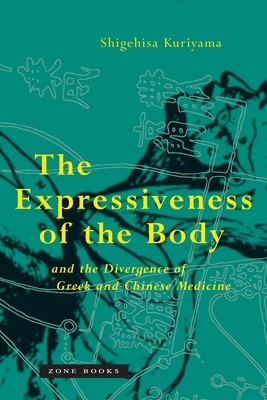
- We will send in 10–14 business days.
- Author: Shigehisa Kuriyama
- Publisher: Zone Books
- ISBN-10: 0942299892
- ISBN-13: 9780942299892
- Format: 15.2 x 22.4 x 2.8 cm, minkšti viršeliai
- Language: English
- SAVE -10% with code: EXTRA
The Expressiveness of the Body and the Divergence of Greek and Chinese Medicine (e-book) (used book) | bookbook.eu
Reviews
Description
The true structure and workings of the human body are, we casually assume, everywhere the same, a universal reality. But when we look into the past, our sense of reality wavers: accounts of the body in diverse medical traditions often seem to describe mutually alien, almost unrelated worlds. How can perceptions of something as basic and intimate as the body differ so? In this book, Shigehisa Kuriyama explores this fundamental question, elucidating the fascinating contrasts between the human body described in classical Greek medicine and the body as envisaged by physicians in ancient China. Revealing how perceptions of the body and conceptions of personhood are intimately linked, his comparative inquiry invites us, indeed compels us, to reassess our own habits of feeling and perceiving.
The Expressiveness of the Body was awarded the 2001 Welch Medal by the American Association for the History of Medicine.EXTRA 10 % discount with code: EXTRA
The promotion ends in 24d.00:28:04
The discount code is valid when purchasing from 10 €. Discounts do not stack.
- Author: Shigehisa Kuriyama
- Publisher: Zone Books
- ISBN-10: 0942299892
- ISBN-13: 9780942299892
- Format: 15.2 x 22.4 x 2.8 cm, minkšti viršeliai
- Language: English English
The true structure and workings of the human body are, we casually assume, everywhere the same, a universal reality. But when we look into the past, our sense of reality wavers: accounts of the body in diverse medical traditions often seem to describe mutually alien, almost unrelated worlds. How can perceptions of something as basic and intimate as the body differ so? In this book, Shigehisa Kuriyama explores this fundamental question, elucidating the fascinating contrasts between the human body described in classical Greek medicine and the body as envisaged by physicians in ancient China. Revealing how perceptions of the body and conceptions of personhood are intimately linked, his comparative inquiry invites us, indeed compels us, to reassess our own habits of feeling and perceiving.
The Expressiveness of the Body was awarded the 2001 Welch Medal by the American Association for the History of Medicine.

Reviews